Search
Troubleshooting Of Main Fractionator Overhead Corrosion in Condensate Splitting Unit Using Ionic Equilibria Modelling
Also Purchased
96600 COST COMPARISON OF MATERIALS OPTIONS FOR HYDROPROCESSING EFFLUENT EQUIPMENT AND PIPING
Product Number:
51300-96600-SG
ISBN:
96600 1996 CP
$20.00
07564 FCCU Light Ends Plant Carbonate Stress Corrosion Cracking Experience
Product Number:
51300-07564-SG
ISBN:
07564 2007 CP
Publication Date:
2007
$20.00
03653 A NEW APPROACH TO PREVENT CORROSION OF THE REACTOR EFFLUENT SYSTEM IN HDS UNITS
Product Number:
51300-03653-SG
ISBN:
03653 2003 CP
$20.00




